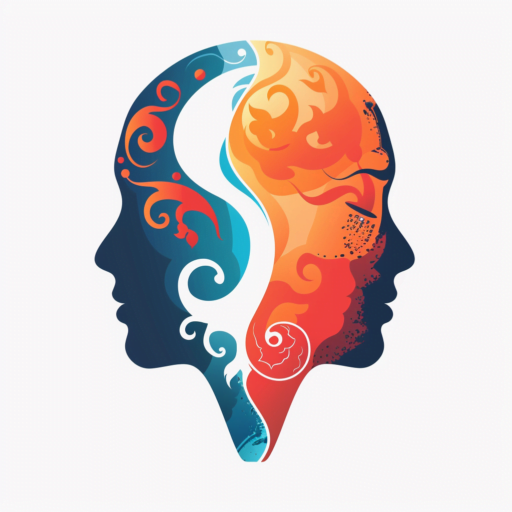Book Appointment Now
Will I Have Good Luck Today?
Wondering if you'll have good luck today? This comprehensive guide explores the fascinating concept of luck from various angles - superstitions, astrology, scientific perspectives, and practical tips to increase your chances of having a lucky day.

Introduction
Have you ever woken up and wondered if today would be your lucky day? Whether you’re making an important decision, starting a new venture, or simply hoping for a stroke of good fortune, the concept of luck plays a significant role in our lives. In this comprehensive guide, we’ll explore the fascinating world of luck, delving into its various aspects, from superstitions and rituals to scientific perspectives and practical tips for increasing your chances of having a lucky day.
What is Luck?
Luck is often defined as a force that brings good or bad fortune, seemingly by chance or without discernible human control. It’s a concept that has been embraced by cultures around the world for centuries, with different interpretations and beliefs surrounding it.
Some view luck as a mystical force that governs the universe, while others see it as a mere coincidence or a matter of probability. Regardless of one’s beliefs, the idea of luck holds a powerful sway over human psychology and decision-making.
Signs and Superstitions for Good Luck
Throughout history, people have developed various superstitions and rituals believed to attract good luck. Here are some of the most common ones:
Lucky Charms and Symbols
- Four-leaf clover: Considered a powerful symbol of luck, especially in Western cultures.
- Horseshoe: Believed to bring good luck when hung with the open end facing upwards.
- Rabbit’s foot: Carrying a rabbit’s foot is thought to ward off bad luck.
- Lucky bamboo: In Asian cultures, this plant is associated with good fortune and prosperity.
Rituals and Traditions
- Knocking on wood: This ritual is believed to prevent tempting fate or jinxing oneself after boasting or expressing confidence.
- Avoiding black cats: In many cultures, black cats are considered unlucky, and crossing their path is seen as a bad omen.
- Throwing salt over the shoulder: This superstition is thought to ward off bad luck or the devil after spilling salt.
While these superstitions may seem irrational, they often provide a sense of control and comfort in uncertain situations.

Factors That May Influence Luck
Astrology and Horoscopes
Astrology is the study of the movements and relative positions of celestial objects and their influence on human affairs and natural events. Many people believe that the alignment of planets and stars at the time of one’s birth can shape their personality, tendencies, and luck.
Horoscopes, which are astrological forecasts based on the positions of the sun, moon, and planets, are often consulted to determine lucky days, events, or periods for various endeavors.
Numerology and Lucky Numbers
Numerology is the belief that numbers have inherent vibrations and energies that can influence people’s lives. Each number is associated with specific traits and meanings, and many cultures have their own lucky numbers.
For example, in Chinese culture, the number 8 is considered extremely fortunate, while in Western cultures, the number 7 is often seen as lucky.
Feng Shui and Environmental Influences
Feng Shui is an ancient Chinese practice that aims to harmonize individuals with their surrounding environment. According to Feng Shui principles, the arrangement of objects, colors, and energy flow within a space can impact various aspects of life, including luck and prosperity.
Practitioners of Feng Shui recommend making specific adjustments to one’s home or office to attract positive energy and good fortune.
Scientific Views on Luck
While many people attribute luck to supernatural forces or cosmic alignments, scientists have explored the concept from a more rational perspective.
Psychological Biases and Self-Fulfilling Prophecies
Researchers have identified various psychological biases that can influence our perception of luck. For instance, the confirmation bias leads us to selectively notice and remember events that confirm our existing beliefs about luck, while ignoring contradictory evidence.
Additionally, the self-fulfilling prophecy suggests that our expectations and beliefs can shape our actions and outcomes, potentially creating a cycle of perceived luck or lack thereof.
The “Luck Factor”
Some researchers have proposed the existence of a “luck factor,” which refers to the ability of certain individuals to consistently experience fortunate events or seize opportunities that others might miss.
This factor is often attributed to personality traits, such as optimism, resilience, and an openness to new experiences, rather than pure chance.
Increasing Your Chances of Good Luck
While luck may seem like an elusive and unpredictable force, there are practical steps you can take to potentially increase your chances of having a lucky day.
Cultivate a Positive Mindset
Maintaining a positive and optimistic outlook can have a profound impact on your perception of luck. By focusing on the opportunities and possibilities around you, rather than dwelling on setbacks or negative thoughts, you may be more likely to recognize and seize fortunate circumstances.
Practice Gratitude and Mindfulness
Expressing gratitude for the good things in your life, no matter how small, can foster a sense of abundance and attract more positive experiences. Additionally, practicing mindfulness and being present in the moment can help you notice and appreciate the lucky moments that might otherwise go unnoticed.
Embrace Preparation and Opportunity
While luck may play a role, success often results from hard work, preparation, and being open to opportunities. By developing your skills, knowledge, and network, you increase the chances of being in the right place at the right time to capitalize on fortunate circumstances.

Personal Experiences with Luck
To illustrate the diverse perspectives on luck, let’s explore some personal experiences shared by individuals who consider themselves lucky or unlucky.
“I’ve always considered myself a lucky person. Whenever I’ve taken a risk or stepped out of my comfort zone, something amazing has happened. It’s like the universe rewards my willingness to embrace new opportunities.” – Sarah, entrepreneur
“I used to think I was unlucky, but then I realized that my negative mindset was holding me back. Once I started focusing on the positive and being grateful for what I had, my luck seemed to turn around.” – Michael, teacher
“Luck is what happens when preparation meets opportunity. I’ve worked hard to develop my skills and network, and that’s why I’ve been able to capitalize on lucky breaks when they’ve come my way.” – Emily, marketing professional
These anecdotes highlight the diverse perspectives on luck and the role that mindset, gratitude, and preparation can play in shaping one’s experiences.
Conclusion
In this comprehensive guide, we’ve explored the fascinating concept of luck from various angles, including superstitions, astrological influences, scientific perspectives, and practical tips for increasing your chances of having a lucky day.
While luck may seem like an elusive and unpredictable force, there are steps you can take to cultivate a positive mindset, embrace preparation, and remain open to opportunities. Remember, luck is often a matter of perception, and by maintaining a balanced and open-minded approach, you may be more likely to recognize and capitalize on the fortunate circumstances that come your way.
Ultimately, whether you attribute your good fortune to cosmic alignments, psychological biases, or sheer chance, the power of luck lies in its ability to inspire hope, resilience, and a sense of wonder in the face of life’s uncertainties.
So, the next time you find yourself wondering, “Will I have good luck today?” remember that the answer may lie within your own mindset, actions, and willingness to embrace the opportunities that come your way.



